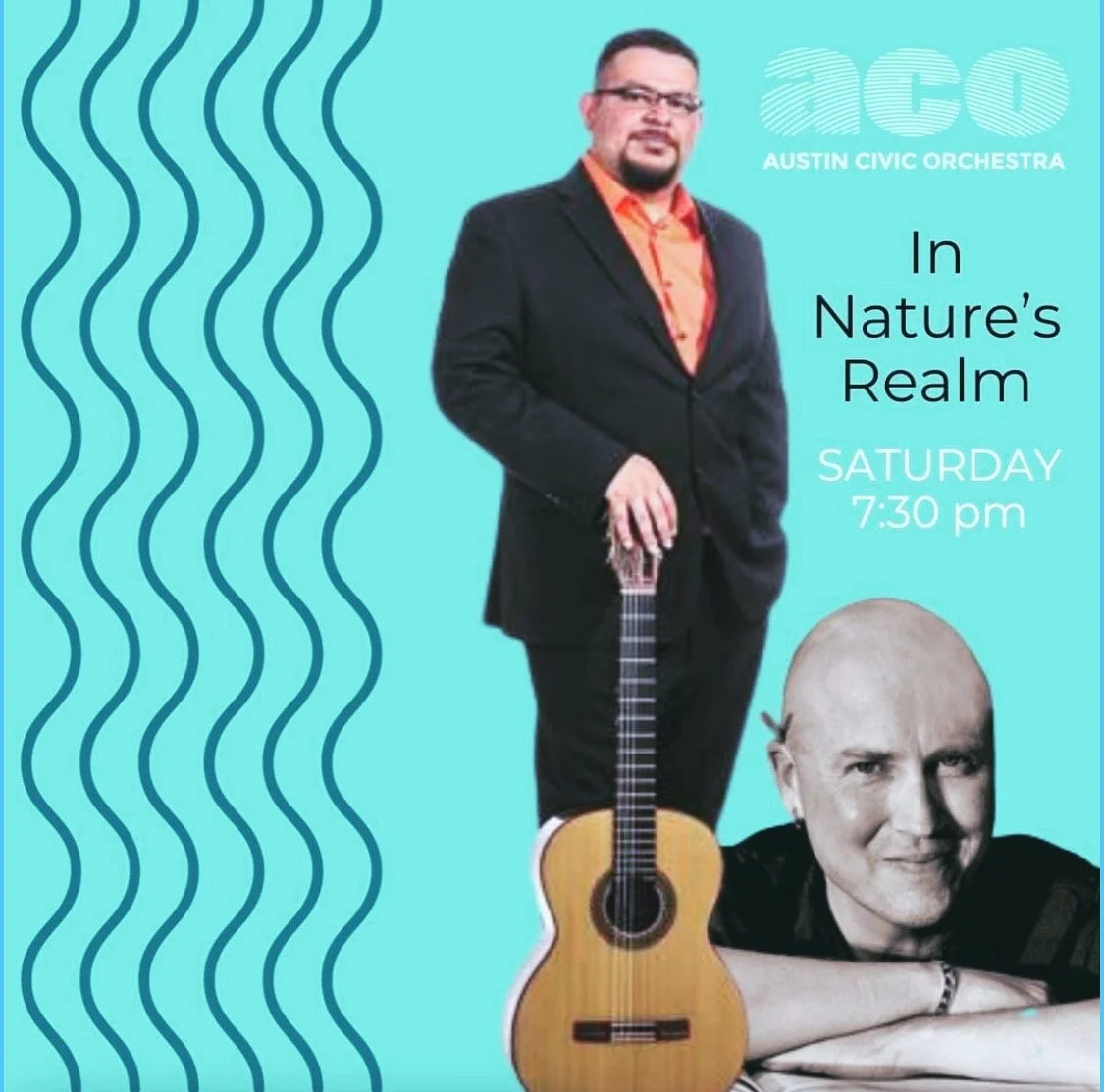Conducting the Austin Civic Orchestra
Stepping in front of an orchestra is both thrilling and terrifying. Communing with a roomful of musicians, all striving to create music as one, is a unique joy. Recently, I had the honor of facilitating this process with the Austin Civic Orchestra.
ACO invited me to be their first guest conductor as they searched for a new music director following the retirement of the revered Lois Ferrari. It was a challenge to work it into my busy gig schedule, but I eagerly accepted. While most of my orchestral experience has involved working with professionals, I believed my long track record in large-scale community art projects would be an asset.
I spent a month researching and curating a program centered around the theme of nature. One piece close to my heart is William Grant Still's "Out of the Silence," which I chose both for its quiet invitation to deep listening AND because there would be ONE piece on the program I’d conducted before. Still, widely regarded as the Dean of African American composers, crafted a hauntingly transparent score that features lightly scored strings with solo flute and piano.
Isaac standing on the shoulder of a not-so-giant…
As a former professional classical guitarist, I wished to weave guitar into the fabric of our concert. Recalling that Joaquin Rodrigo once described his Concierto de Aranjuez as depicting the sounds of nature, I stumbled upon the concert’s centerpiece, and the opportunity to work once again with my amazingly talented friend, Isaac Bustos. Isaac and I worked together on the production/premiere of Nico Muhly’s How Little You Are in 2015 and share a deep common musical lineage: we both studied with the world-renowned Adam Holzman during our University of Texas graduate years, and we also had the same undergraduate teacher, the wonderful Christopher Kane (not to mention support and coaching from the late, great Frank Wallace).
I’ll admit that the music of Aaron Copland eluded me as an angsty young musician (too genteel, too populist), but it once became a source of solace during a particularly challenging year of my younger life, one which involved the death of a close friend, the tumultuous end of a long-term romantic relationship, and my taking on a rough public school music teaching gig in Concord, NH. I discovered that someone had left a CD of Copland’s The Red Pony in a classroom boombox, and found myself turning to it for comfort. The cinematic allure of that work inspired me to think about my life and my next steps (perhaps a move west… maybe Texas?). The closing piece was now locked down.
To complete the program, I offered the orchestra my own composition, "In Time Like Air," inspired by a recent visit to my hometown on the rugged coast of Maine and May Sarton's Maine-inspired poetry. This would serve as a meditative interlude between the more lively Rodrigo and Copland, and balance out some of the concert’s more traditional elements.
Given my musical travels leading up to rehearsals, much of my score study, music prep, and memorization of mixed meters needed to occur on airplanes, in hotel rooms, and whilst barreling down the Mass Turnpike in my rental car. A bit of a cram, but the anticipation of getting back to Austin to make music with new friends kept me on-task.
Rehearsals were limited, but the musicians embraced the challenge. On concert day, there were hiccups here and there, but the orchestra's collective energy and love of music prevailed.
Isaac and I at the ACO dress rehearsal (with some sound toys for my piece in the background)
The Still composition began a little tentatively, though I saw this as an opportunity to draw the audience in, and I adjusted dynamics on-the-fly to leave room for this possibility. Isaac's performance inevitably stole the show, as he won over audience and orchestra alike with his fiery take on the concerto (as well as his encore of Yesterday as arranged by Toru Takemitsu). The orchestra delivered a heartfelt rendition of my composition, maintaining an exciting sense of improvised spontaneity throughout. We then unleashed the power of Copland's music, and the concert — as well as my journey with the orchestra — was complete.
I walked away from the evening feeling satisfied with the communal music-making, and happy to have had the honor of setting the orchestra on a solid path at the start of an interim year. I may have experienced a few separation grief pangs over my time with ACO coming to a close, but I eagerly look forward to seeing where their hard work leads them in future years.
Thank you, beautiful ACO friends. It’s been a true pleasure and adventure.

